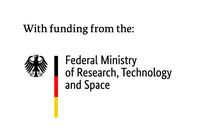Assessing Marine Carbon Removal: Synthesis, Scenarios & Governance
Removing CO2 from the atmosphere (Carbon Dioxide Removal, CDR) is essential to achieving greenhouse gas neutrality in Germany, Europe and globally. A wide range of terrestrial, geological, material-based and marine CDR approaches have been proposed, and the scientific and societal understanding of each method varies greatly. The SWP has been involved in the BMBF funding lines on CO2 removal (CDRmare and CDRterra) since 2021. In both funding lines, assessments and synthesis of the evolving state of knowledge are being undertaken to improve future decision-making on the role of CDR in German and European climate policy. While CDRmare addresses marine CDR (mCDR) methods, CDRterra focuses on land-based methods.
Within CDRmare, the SWP contributes to the ASMASYS II project (Assessing Marine Carbon Removal: Synthesis, Scenarios & Governance) tasked with the transdisciplinary assessment of the feasibility and desirability of various mCDR research and implementation scenarios. Strong emphasis is being put on the assessment of non-natural science aspects, including legal, social, ethical and political dimensions.
The project consists of four main lines of work: 1) the development of marine Carbon Dioxide Removal (mCDR) scenarios, 2) a refinement of an assessment framework developed in phase I the project, 3) the application of the framework to selected explorative mCDR implementation scenarios and 4) an overarching Social Sciences & Humanities Hub to address cross-cutting regulatory and governance questions.
The SWP is responsible for leading the development of qualitative mCDR foresight scenarios, and assessing the potential future political and institutional feasibility of such scenarios within the in the German, European and wider international context. A particular focus is being placed on anticipating the trade-offs and synergies of mCDR futures at the nexus of climate, ocean and biodiversity governance. The resulting scenarios will provide policy-makers and society with detailed information on potential pathways for marine CO2-removal and governance.
Project lead
-
Dr. Miranda Böttcher
Global Issues (Associate)
Research Cluster Climate Policy and Politics (Associate)
Areas of Expertise
- Climate policy
- Foresight
- Sustainability governance
Projects
Publications
-
Exploring Site-Specific Carbon Dioxide Removal Options With Storage or Sequestration in the Marine Environment – The 10 Mt CO₂ yr⁻¹ Removal Challenge for Germany
in: Earth's Future, 13, 4, April 2025doi:10.1029/2024EF004902
-
A holistic assessment framework for marine carbon dioxide removal options
in: Environmental Research Letters, 21, 04.04.2025doi:10.1088/1748-9326/adc93f
-
Distinguish between feasibility and desirability when assessing climate response options
in: npj Climate Action, 4, 34, April 2025doi:10.1038/s44168-025-00237-2
-
The potential of the BBNJ clearing house mechanism to enhance knowledge pluralism in marine carbon dioxide removal assessment
in: Frontiers in Climate, Sec. Carbon Dioxide Removal, Volume 6 - 2024, 16.12.2024doi:10.3389/fclim.2024.1497476
-
Editorial: Carbon dioxide removal: perspectives from the social sciences and humanities
in: Frontiers in Climate, Sec. Carbon Dioxide Removal, Volume 6 - 2024, 31.10.2024doi:10.3389/fclim.2024.1509331
-
Carbon dioxide removal: Perspectives from the social sciences and humanities
Lausanne: Frontiers Media SA, July 2024doi:10.3389/978-2-8325-5156-1
